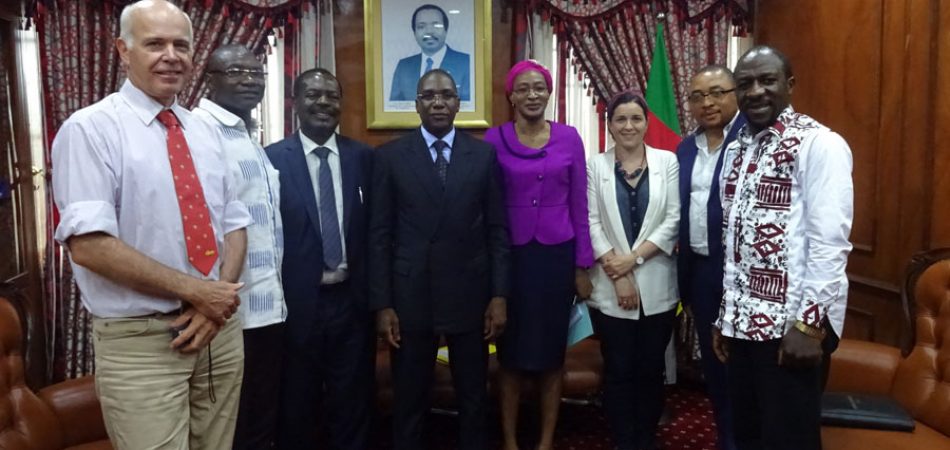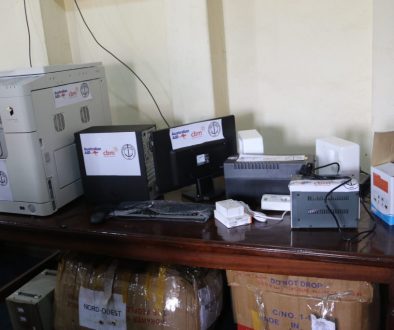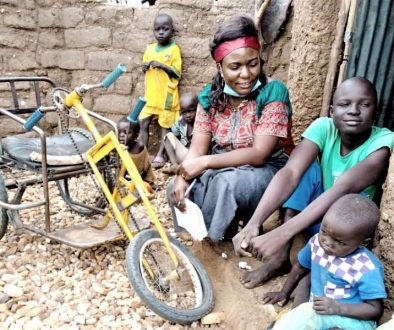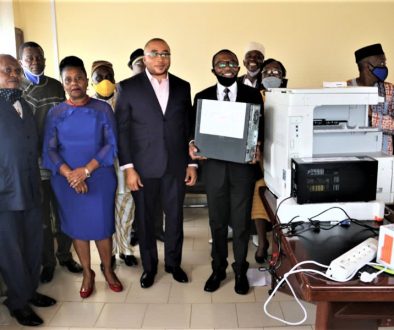Cameroon adopts Ponseti Method of treating Clubfoot
The Ponseti method of treating clubfoot will henceforth be used in Cameroon following a Ministerial decision signed by the Minister of Public Health on December 18, 2019. The Ministerial endorsement considered as a landmark achievement in the history of the project has been received with a lot of excitement by the Cameroon Clubfoot Care Project (CCCP) stakeholders.
The decision directed to Directors of Hospitals of first category highlighted that clubfoot is a congenital deformity that affects 1000 new births each year in Cameroon. The decision, admonished the public to identify clubfoot and refer to the physiotherapy centers for treatment using the Ponseti method.
This endorsement comes 5 years after the Cameroon Clubfoot Care Project has championed the use of the method to treat over 1100 persons with clubfoot through 21 recognized clubfoot treatment centers in 7 regions of the country. To encourage the use of the Ponseti method in the country, the CCCP trained 147 physiotherapy staff from some public and private faith based health facilities.
According to the Project Manager, Awa Jacques Chirac, the results of the method used over the years and success recorded, used as evidences during several advocacy visits to the Ministry of Public Health contributed to the ministerial decision. “The appointment of the Clubfoot Focal Person at the Ministry and the subsequent approval of the Ponseti Method, demonstrates the good will of the government in ensuring that all children born with clubfoot deformity are treated. I am hopeful that this decision if implemented in all the 179 district hospitals in the country, will drastically reduce the prevalence of clubfoot in Cameroon,” concluded Mr. Awa.
The Project Manager pointed out that the CBC Health Services with funding from CBM Germany has been committed in treating clubfoot over the years but from the date the Minister took the decision, clubfoot seizes to be a CBC Health Services affair; rather the CBC Health Services will avail itself to be a technical partner to the Ministry of Public Health.
“I expect to see improved access to treatment by children with clubfoot with the increase in the treatment clinics, easy management of data, better collaboration between CCCP and the health system amongst others. Given that the method is mandatory for the health facilities as per the Minister’s decision, it will increase access to treatment by children with clubfoot,” Mr. Awa noted. He revealed that efforts are being put in place to ensure that all infant welfare clinics belong to clubfoot network where midwives will be trained to ensure early identification of clubfoot.
The Clinical Supervisor, Dr. Henry Ndasi congratulated the Physiotherapy staff in the partner clubfoot clinics who have put in efforts to treat the number of children with clubfoot so far. He said that the decision of the Minister aims to ensure early prevention of disability resulting from clubfoot using the Ponseti method. This, he noted, is because Ponseti is classically for children less than 2 years while those above 2 years will be corrected through surgery.
Dr. Ndasi reiterated that since 1979 till date Ponseti method has been established to be the best method of treating clubfoot. He expressed the willingness of the CBC Health Services to train Physiotherapy staff on the approved method to ensure effective implementation of the decision with good outcome.
Reacting to the Ministerial decision, the Director of CBC Health Services, Prof. Tih Pius Muffih in a circular addressed to all heads of Clubfoot Clinics appreciated them for the successes recorded in the previous phases of the program which were used as evidences for the technique to be officially approved. He urged them to continue putting in their best in preventing disabilities resulting from clubfoot deformity.



